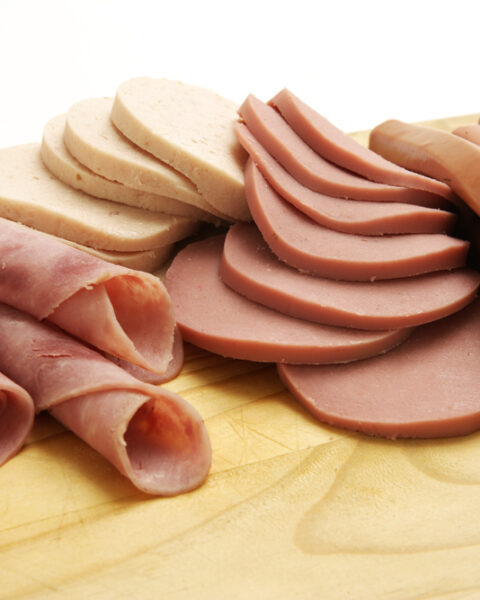Maintaining healthy cholesterol levels is vital for long-term heart health, and the type of fat you consume plays a key role in this process. Rather than avoiding all fats, it’s important to focus on incorporating healthy fats that support good cholesterol and reduce the risk of heart disease. These beneficial fats are found in a variety of delicious and versatile foods. Here’s a look at some of the top healthy fats that can help you manage cholesterol effectively.
Contents
- 1 Avocados
- 2 Olive Oil
- 3 Nuts
- 4 Fatty Fish
- 5 Chia Seeds
- 6 Flaxseeds
- 7 Dark Chocolate
- 8 Eggs
- 9 Coconut Oil
- 10 Avocado Oil
- 11 Peanut Butter
- 12 Cheese
- 13 Extra Virgin Coconut Oil
- 14 Sunflower Seeds
- 15 Macadamia Nuts
- 16 More From RetailShout
- 17 18 Uncommon Root Vegetables That Boost Energy and Immunity
- 18 17 Underrated Supermarket Finds That Deserve a Spot in Your Pantry
Avocados
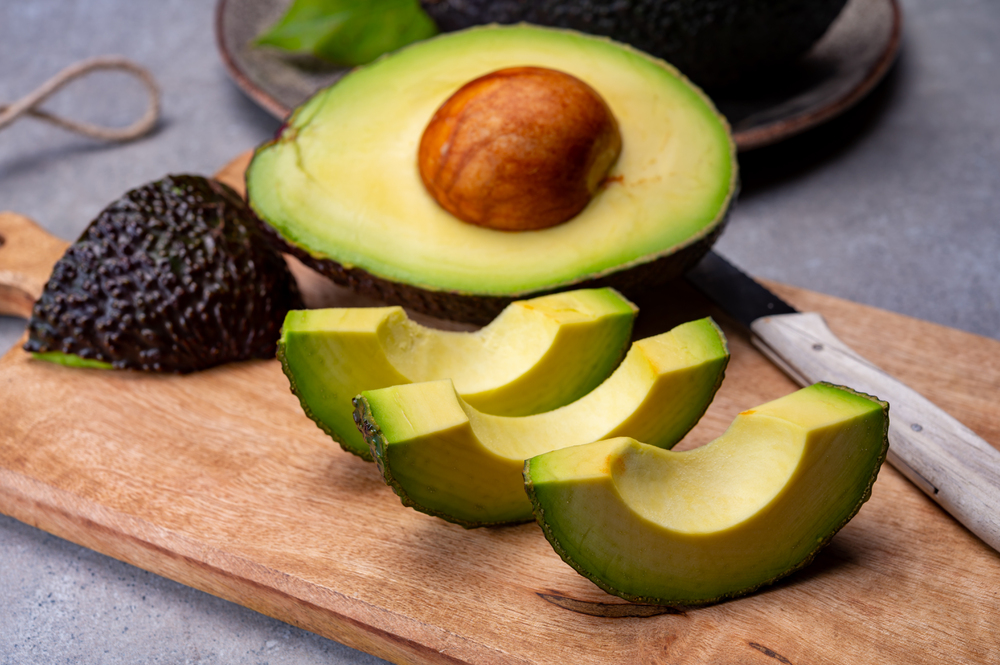
Avocados are a rich source of monounsaturated fats, which are known to improve heart health by increasing levels of HDL (good) cholesterol while lowering LDL (bad) cholesterol. This creamy fruit is also packed with fiber, which further supports healthy cholesterol levels by helping to remove excess cholesterol from the body. In addition to being heart-healthy, avocados are versatile and can be added to salads, smoothies, or enjoyed on their own. Their mild flavor makes them a perfect addition to any diet focused on maintaining good cholesterol.
Olive Oil

Olive oil, particularly extra virgin olive oil, is celebrated for its high content of monounsaturated fats and antioxidants. These properties make it a powerhouse for boosting HDL cholesterol and reducing inflammation, which is crucial for heart health. Incorporating olive oil into your daily diet, whether for cooking or as a dressing, can significantly contribute to better cholesterol management. Its rich flavor and numerous health benefits have made it a staple in Mediterranean diets, known for their heart-protective effects.
Nuts
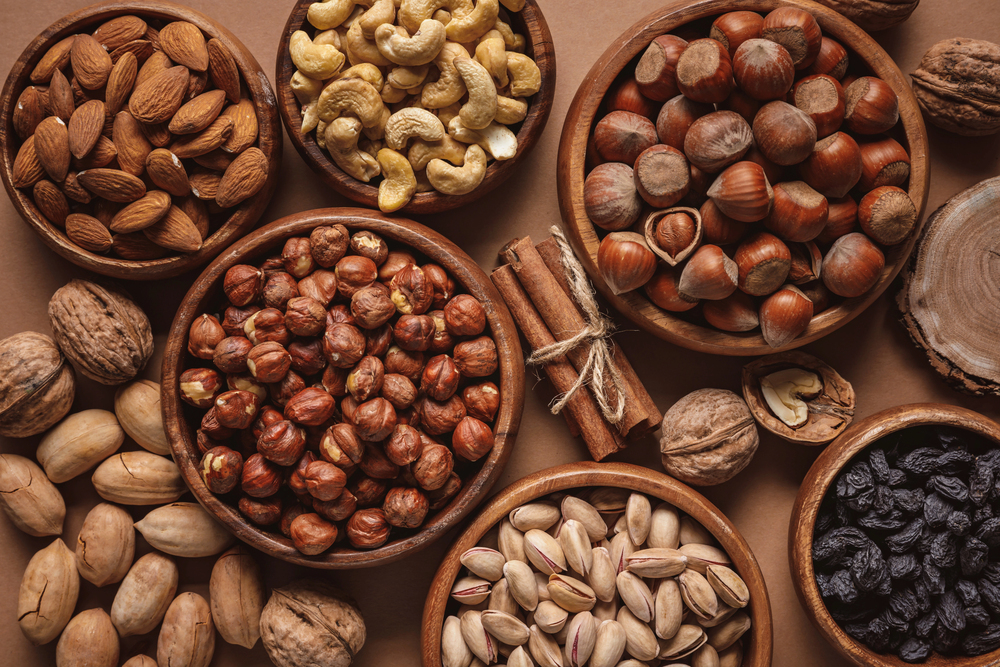
Nuts like almonds, walnuts, and pistachios are packed with healthy fats that have been shown to improve cholesterol levels. These nuts are rich in monounsaturated fats, omega-3 fatty acids, and fiber, all of which contribute to lowering LDL cholesterol and raising HDL cholesterol. A small handful of nuts as a snack or added to your meals can provide a satisfying and heart-healthy boost. Their nutrient density also means they offer other benefits, such as improving blood vessel function and reducing inflammation.
Fatty Fish
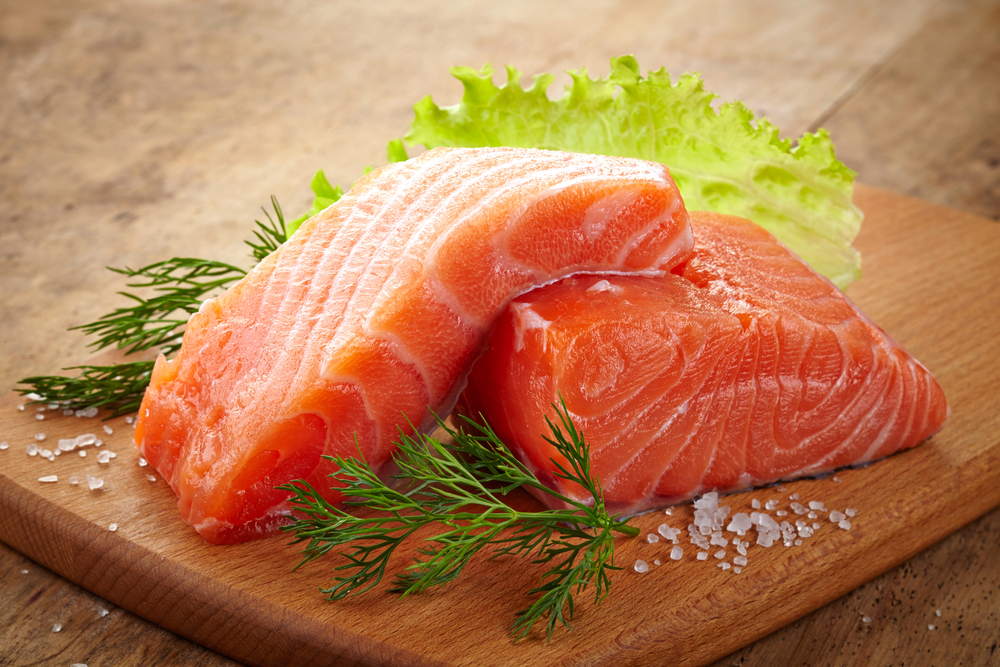
Fatty fish, such as salmon, mackerel, and sardines, are excellent sources of omega-3 fatty acids, which are essential for heart health. These fats help lower triglycerides, reduce blood pressure, and raise HDL cholesterol levels, making them a critical part of a cholesterol-friendly diet. Regular consumption of fatty fish has been linked to a lower risk of heart disease and stroke. Grilled, baked, or steamed, these fish provide a delicious way to get your healthy fats.
Chia Seeds
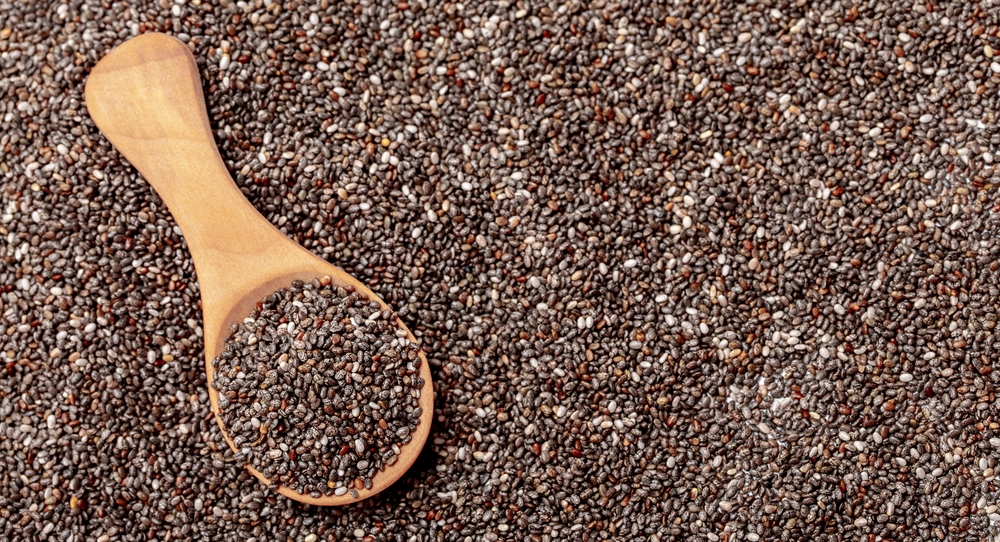
Chia seeds are tiny powerhouses loaded with omega-3 fatty acids, fiber, and protein. The omega-3s found in chia seeds help to lower LDL cholesterol and triglycerides while raising HDL cholesterol. Their high fiber content also aids in reducing the absorption of cholesterol in the bloodstream. These versatile seeds can be added to smoothies, yogurt, or oatmeal for a nutrient-packed meal that supports heart health.
Flaxseeds
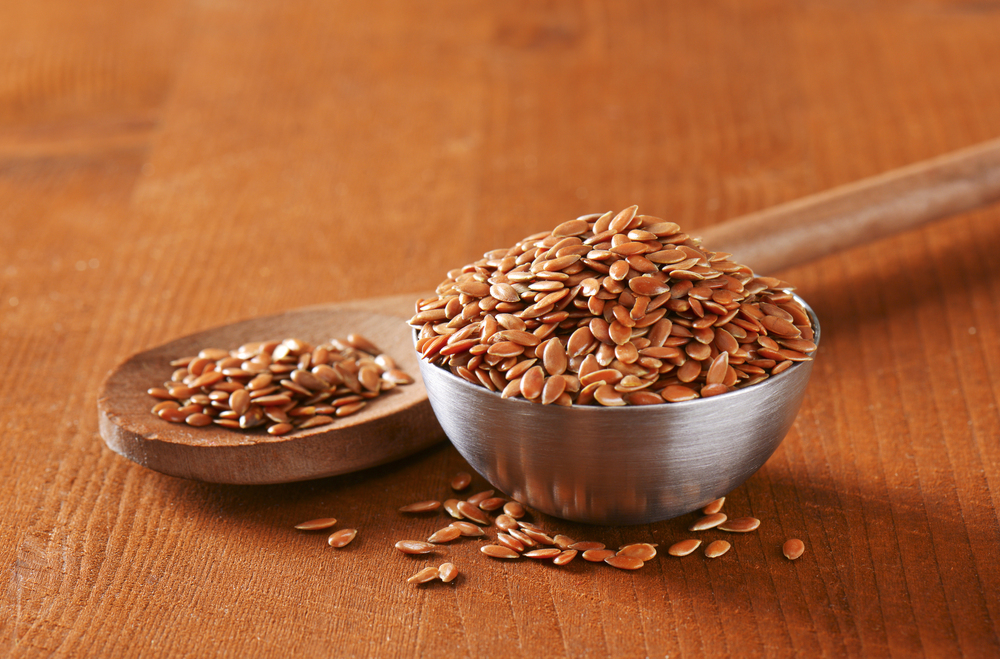
Flaxseeds are another excellent source of omega-3 fatty acids, particularly alpha-linolenic acid (ALA), which is beneficial for lowering cholesterol levels. They also contain lignans, which have antioxidant properties that contribute to cardiovascular health. Ground flaxseeds are particularly effective as they are easier for the body to absorb, making them a valuable addition to your diet. Sprinkle them on cereal, mix them into smoothies, or incorporate them into baked goods to enjoy their heart-healthy benefits.
Dark Chocolate
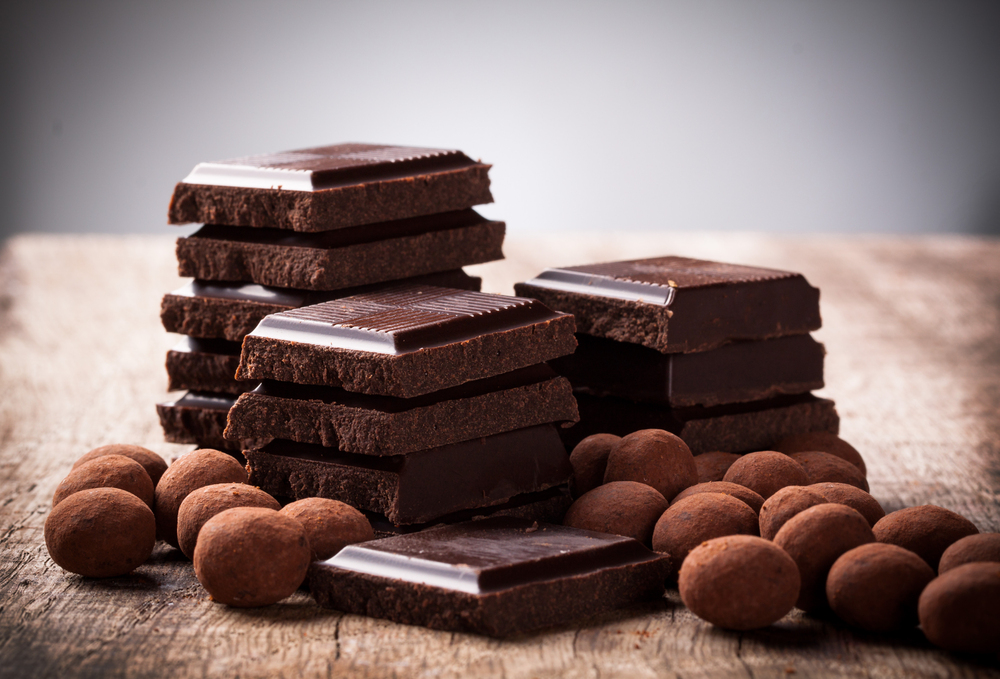
Dark chocolate, especially varieties with a high cocoa content, is rich in monounsaturated fats and flavonoids, which have been shown to improve cholesterol levels. The antioxidants in dark chocolate can increase HDL cholesterol while protecting LDL cholesterol from oxidation, which is a key factor in heart disease. Enjoying a small piece of dark chocolate can be both a treat and a healthy addition to your diet. Just be mindful of portion sizes to keep the benefits without overindulging in sugar.
Eggs

Eggs have long been debated in cholesterol discussions, but recent research shows that they can be part of a heart-healthy diet. Eggs are rich in monounsaturated and polyunsaturated fats, which help maintain a healthy balance between HDL and LDL cholesterol. The key is moderation and combining eggs with other heart-healthy foods. Including eggs in your diet provides high-quality protein along with essential nutrients that support overall health.
Coconut Oil
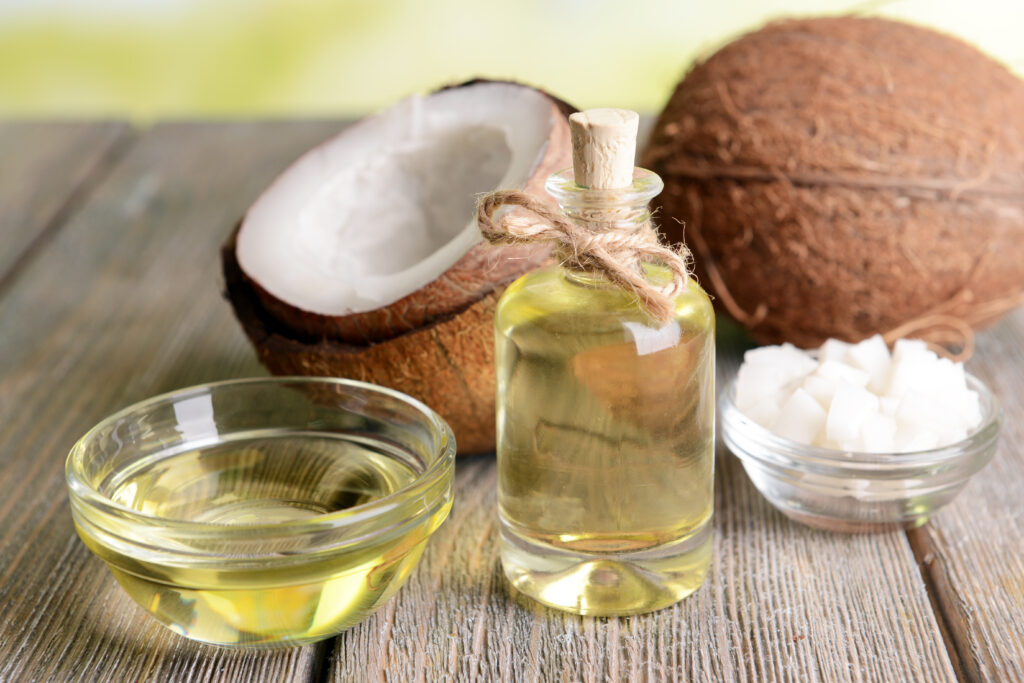
Coconut oil contains medium-chain triglycerides (MCTs), which are a type of saturated fat that can raise HDL cholesterol. While coconut oil has been controversial, studies suggest that its MCT content may have beneficial effects on cholesterol levels when consumed in moderation. It can be used for cooking or as an ingredient in baking, offering a unique flavor and potential health benefits. However, it’s best to use it alongside other healthy fats like olive oil for a balanced approach.
Avocado Oil
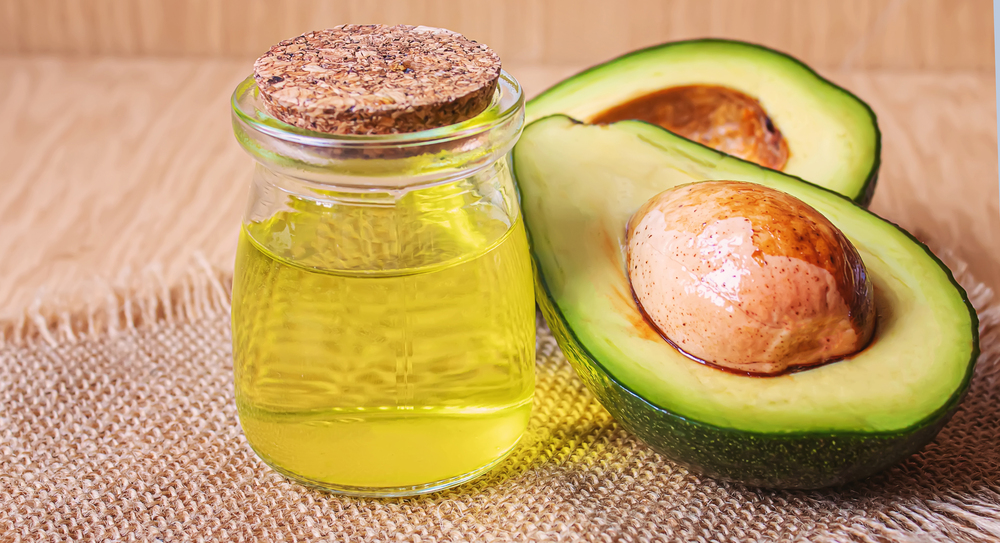
Avocado oil, like the fruit itself, is packed with monounsaturated fats that support heart health by improving cholesterol levels. It’s also high in antioxidants that help reduce inflammation, further promoting cardiovascular wellness. Avocado oil is versatile and has a high smoke point, making it excellent for cooking at higher temperatures. Its mild flavor makes it an easy addition to salads, marinades, and even as a topping for toast.
Peanut Butter
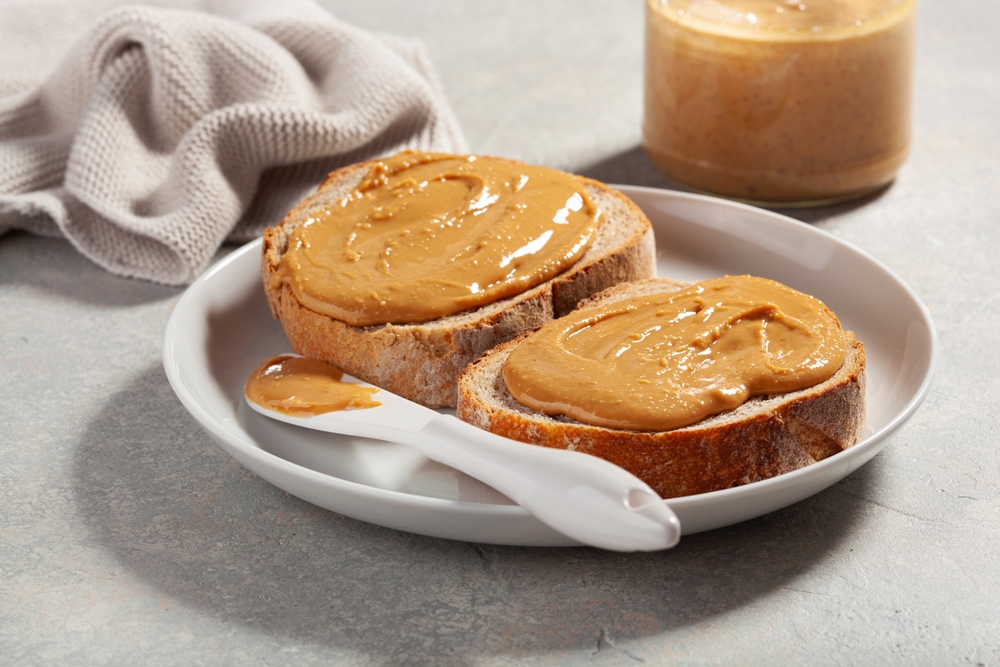
Peanut butter, when consumed in its natural form without added sugars or hydrogenated oils, can be a heart-healthy addition to your diet. It’s rich in monounsaturated fats, which help increase HDL cholesterol while lowering LDL cholesterol. A moderate amount of peanut butter can be enjoyed on whole-grain bread, in smoothies, or as a dip for fruits and vegetables. Its protein content also makes it a satisfying and nourishing snack.
Cheese
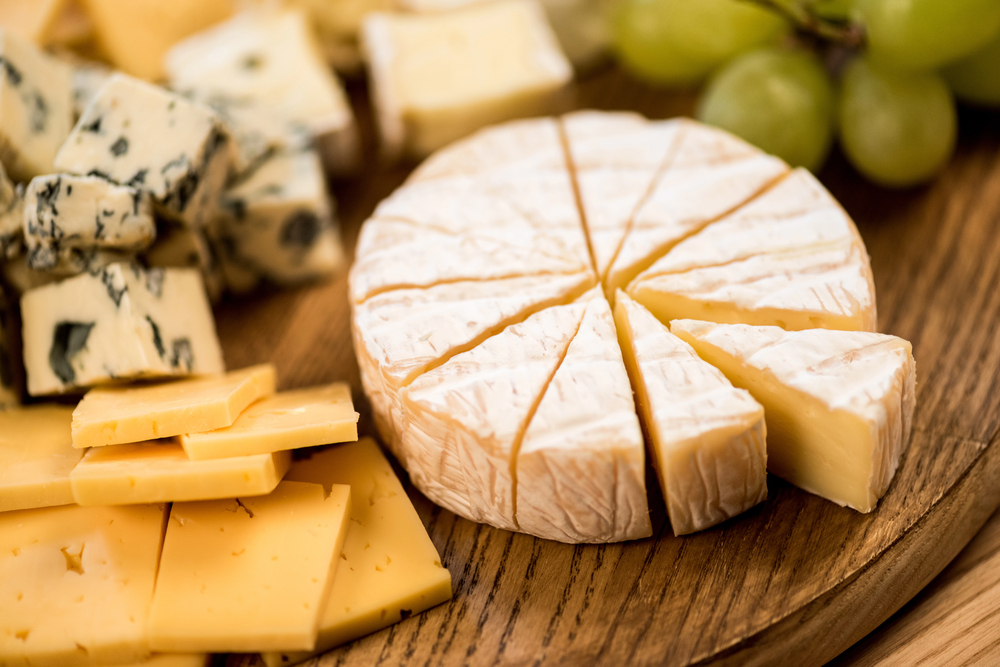
Cheese, especially in moderation, can be part of a cholesterol-friendly diet due to its content of healthy fats. Full-fat cheese contains conjugated linoleic acid (CLA), which has been linked to heart health benefits, including improved cholesterol levels. Opt for high-quality, minimally processed cheeses and pair them with fruits or whole grains to enjoy their nutritional benefits. While cheese should be enjoyed in moderation, it can provide valuable nutrients like calcium and protein.
Extra Virgin Coconut Oil
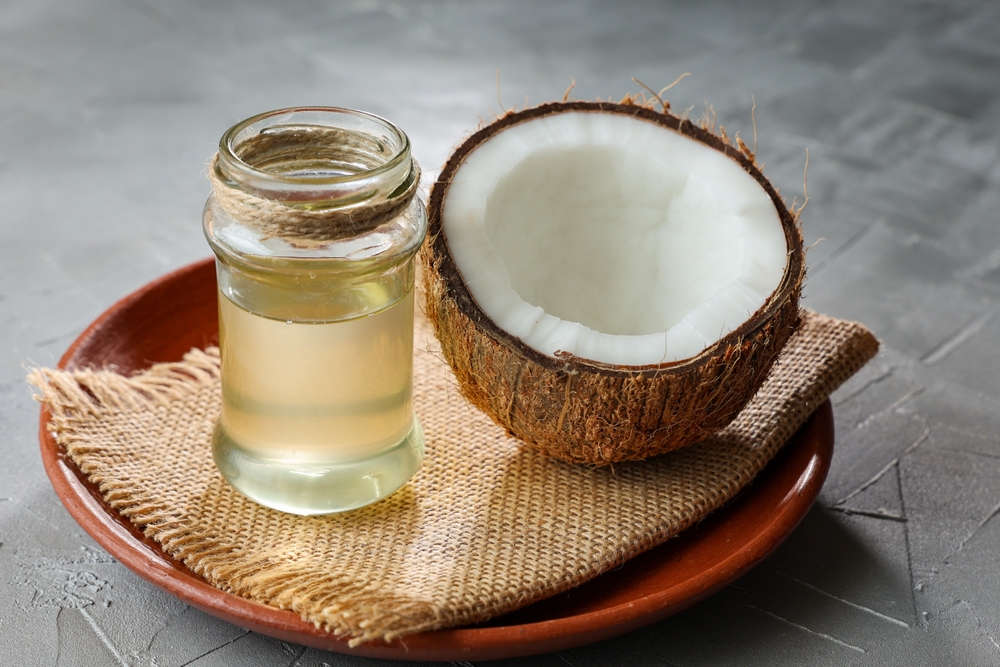
Extra virgin coconut oil is another source of medium-chain triglycerides (MCTs) that can help raise HDL cholesterol. This type of coconut oil is less processed, retaining more of its natural antioxidants and beneficial compounds. It can be used in a variety of recipes, from sautéing vegetables to baking, providing a subtle tropical flavor. As with all fats, moderation is key, but incorporating it into a balanced diet can offer heart health benefits.
Sunflower Seeds
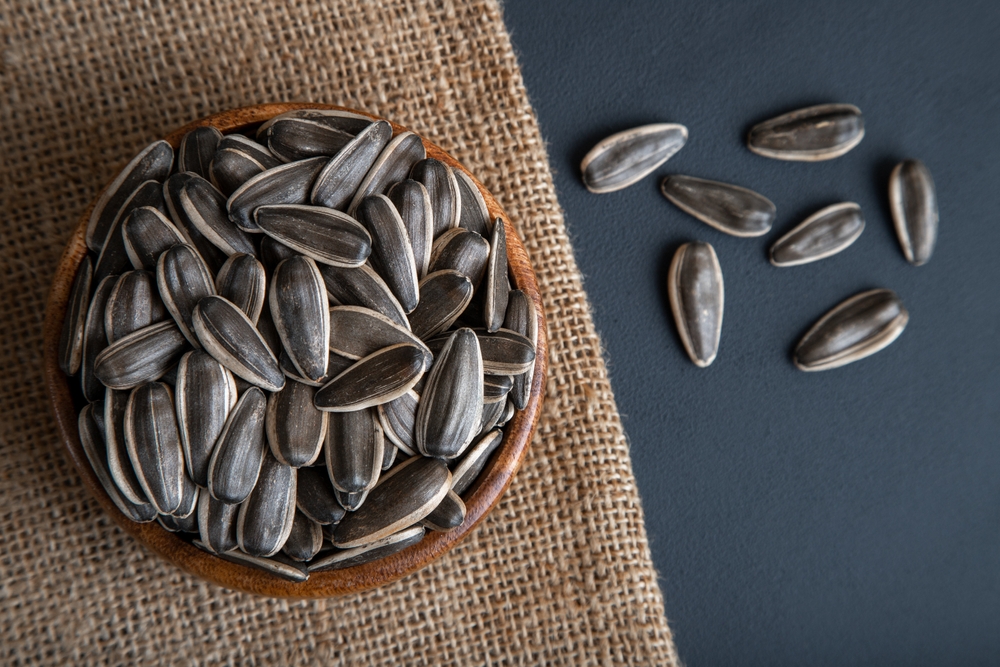
Sunflower seeds are rich in polyunsaturated fats, including omega-6 fatty acids, which can help lower LDL cholesterol when consumed in moderation. They also provide a good source of vitamin E, an antioxidant that supports heart health. Sunflower seeds can be enjoyed as a snack, added to salads, or sprinkled over yogurt for a crunchy and nutritious addition to your diet. Their nutrient profile makes them a convenient and heart-healthy choice.
Macadamia Nuts
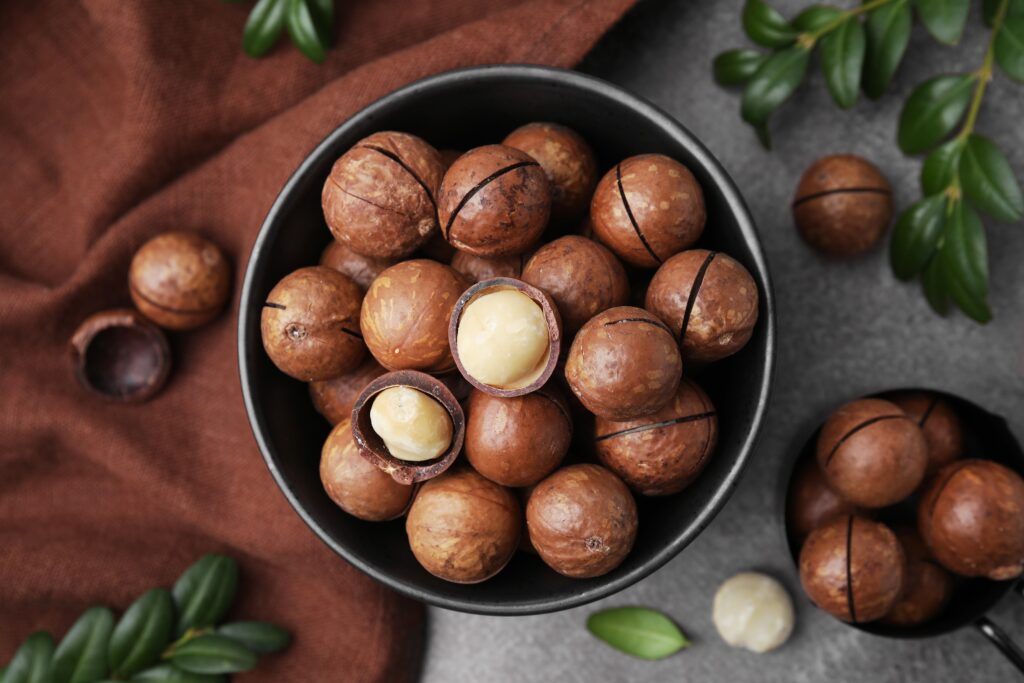
Macadamia nuts are particularly high in monounsaturated fats, which are beneficial for lowering LDL cholesterol and raising HDL cholesterol. These nuts are also rich in antioxidants, which help protect the heart by reducing inflammation and oxidative stress. Enjoying macadamia nuts as a snack or adding them to dishes can provide a delicious way to support cholesterol health. Their creamy texture and subtle flavor make them a versatile and satisfying option.
This article originally appeared on RetailShout.
More From RetailShout
What Are 16 Hot Items at Trader Joe’s This Week (11/03/2024)
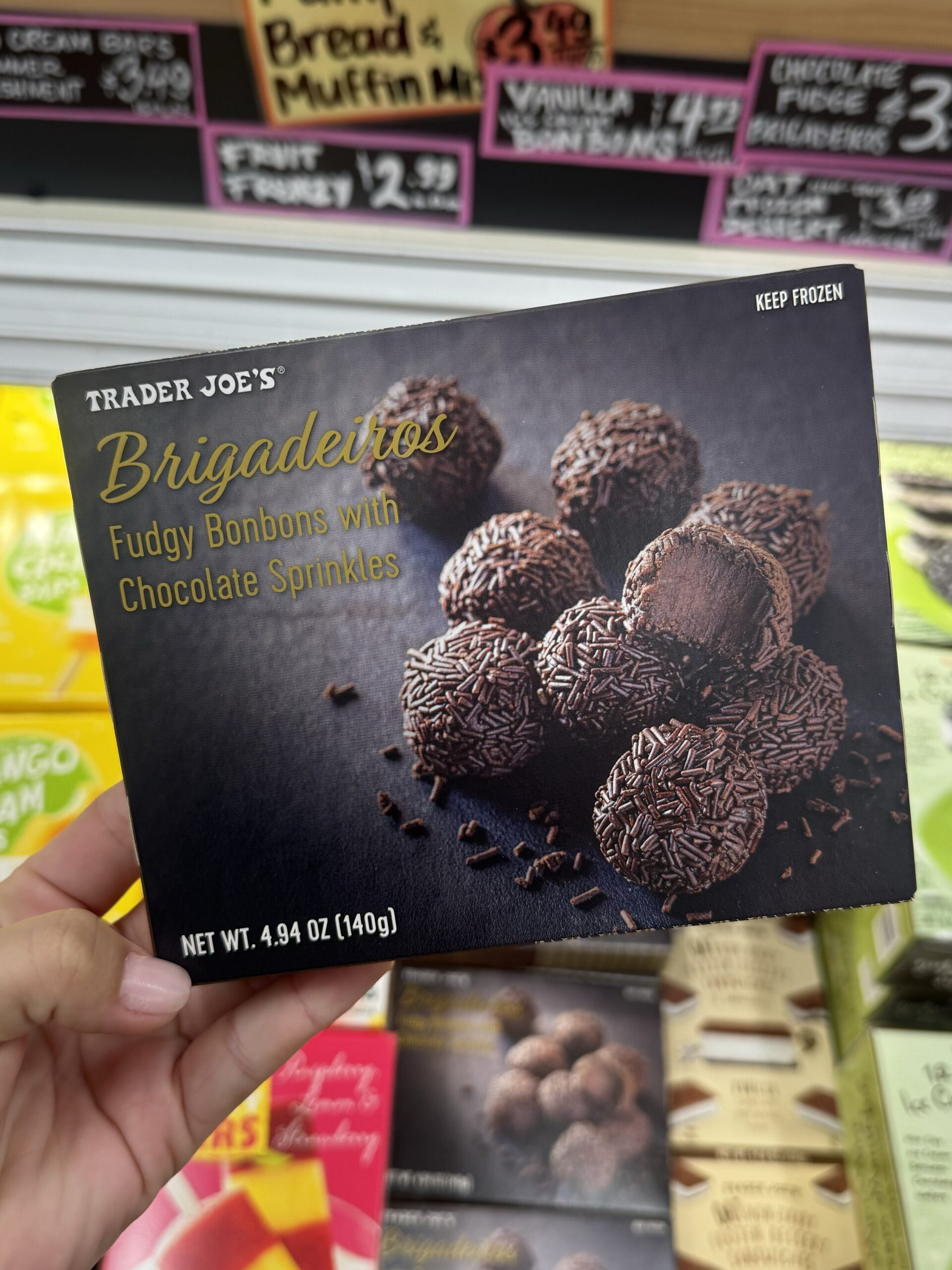
Trader Joe’s is dishing out some serious temptations this week! They’ve stacked the shelves with seasonal hits and must-try finds. Read More.
18 Uncommon Root Vegetables That Boost Energy and Immunity
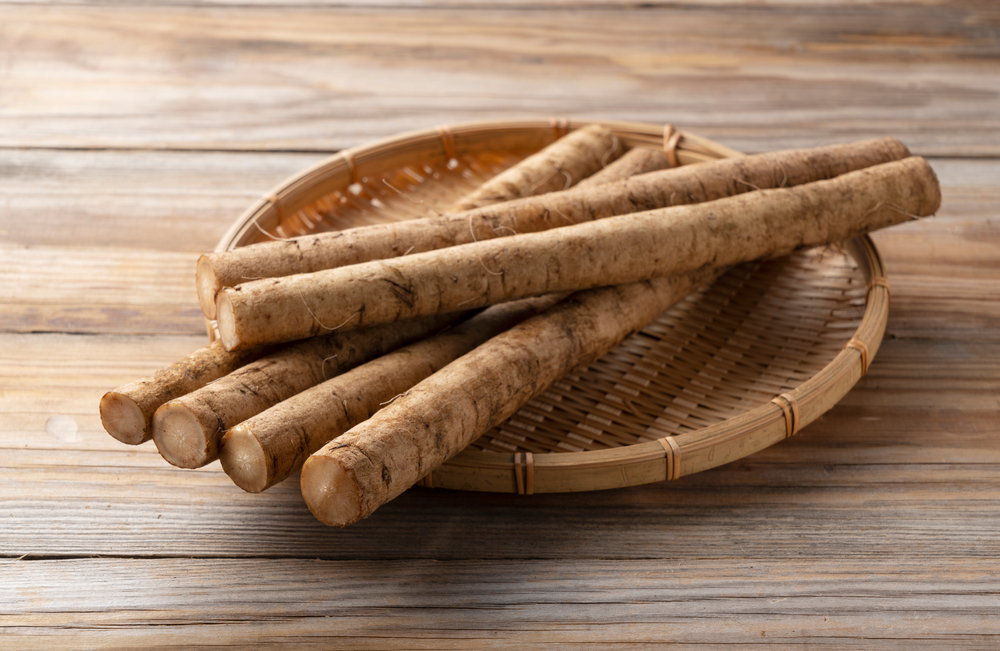
Sometimes it’s easy to get stuck in a routine with the same vegetables week after week, but there are so many underrated root vegetables that can give you a real boost. Adding a few of these less common roots to your meals can make a huge difference in how you feel. Read More.
17 Underrated Supermarket Finds That Deserve a Spot in Your Pantry
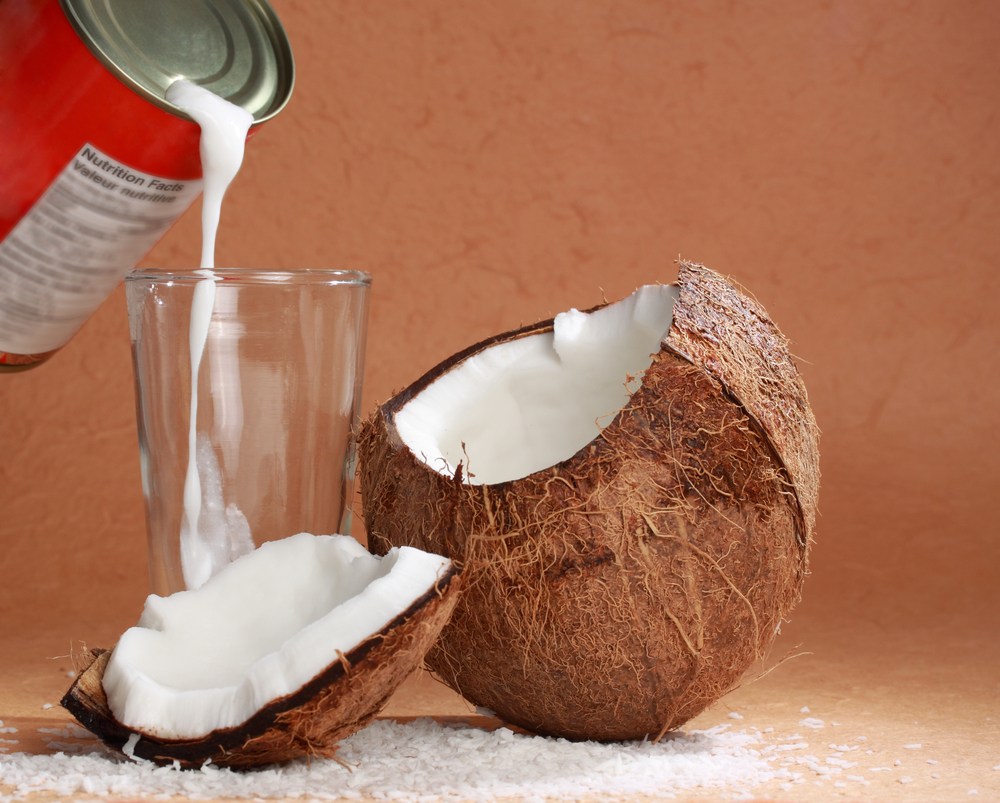
Sometimes, the best treasures in the kitchen aren’t the flashy or trendy items, but the quiet essentials that can make a big difference in everyday cooking. There are hidden gems on supermarket shelves that often go unnoticed, yet they can elevate your meals in ways you wouldn’t expect. Read More.



